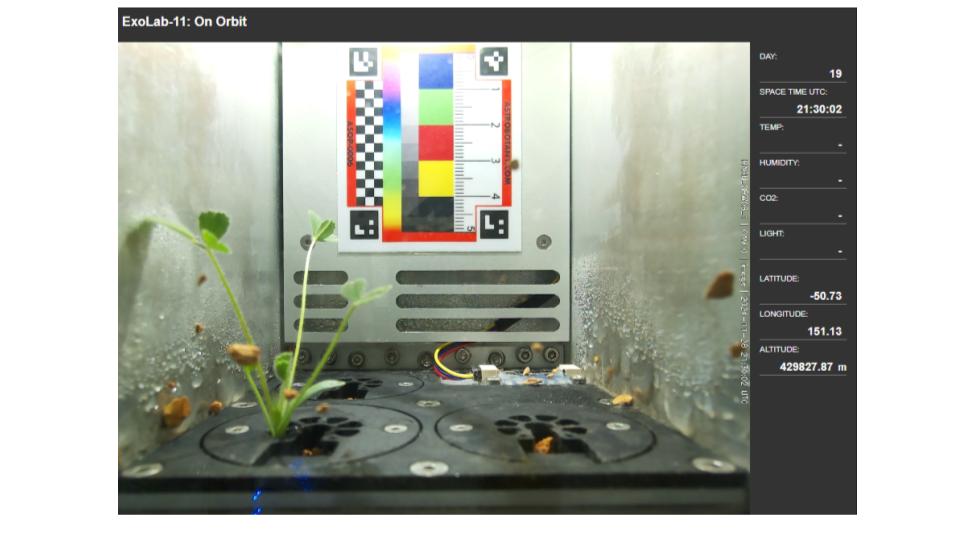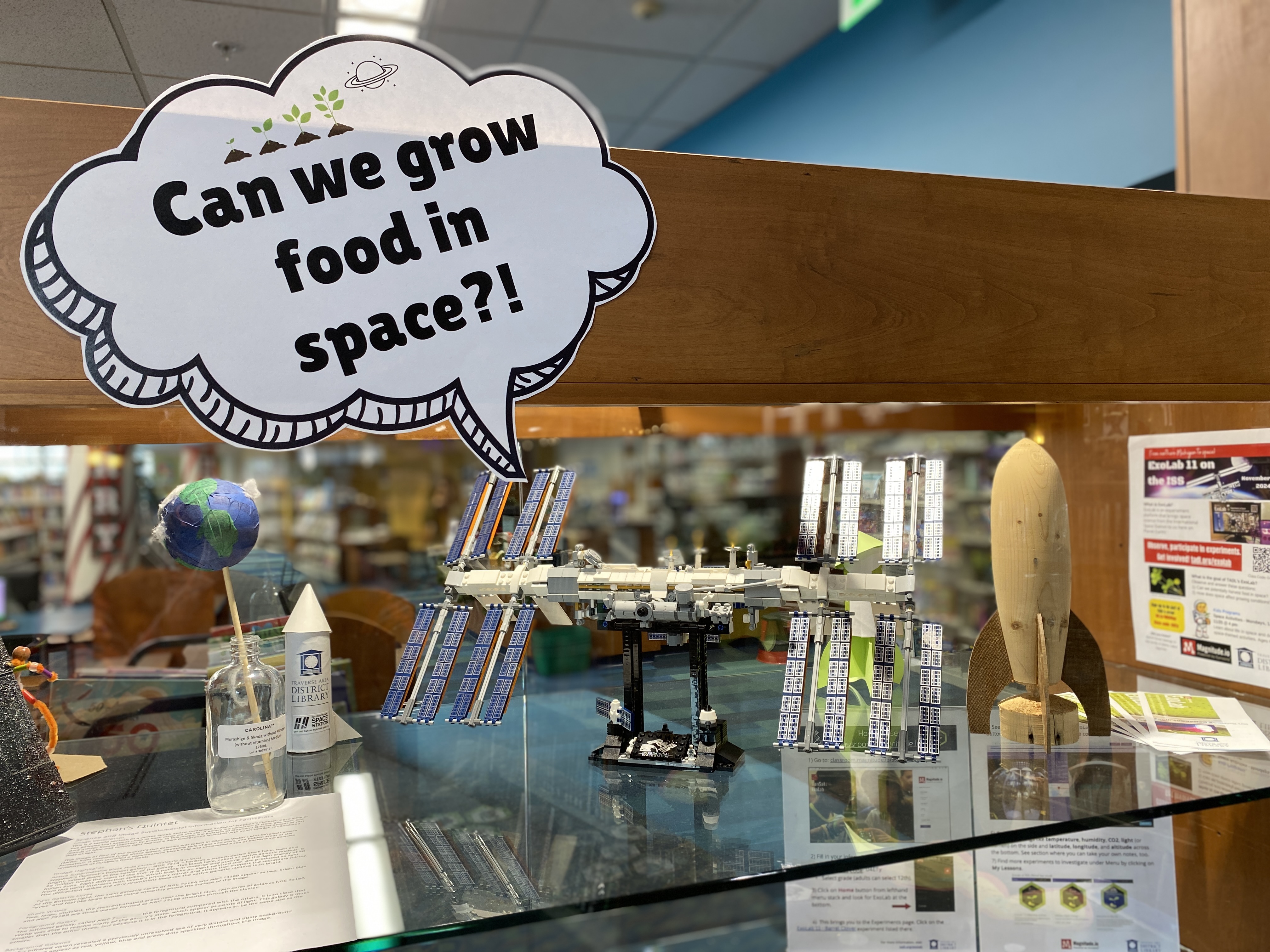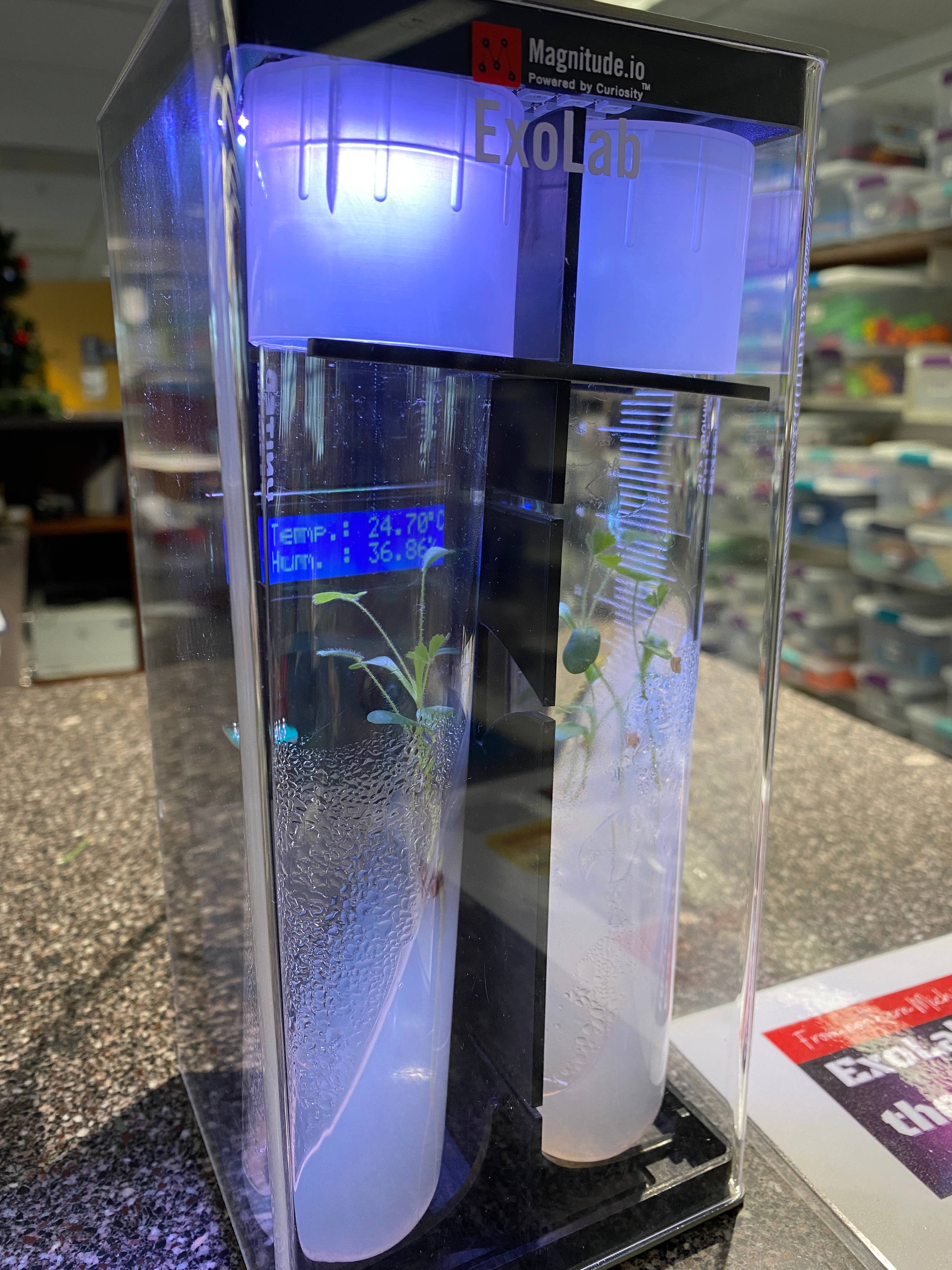Exolab 2024
How would we grow food in space? Let's find out!
What is an ExoLab? ExoLab is an experiment platform that brings together classrooms, three TADL libraries and the International Space Station (ISS) to investigate how space affects living things (including food plants).
TADL will have a duplicate growing capsule in the display case outside the Youth Services department. We'll take the same measurements as the ISS crew. Then we'll compare the differences! (Details on measurements, NASA experiment criteria)
ExoLab Mission 11: The effect of microgravity on barrel clover (Medicago truncatula).
Join our ExoLab experiment here:
- All ages(!) sign-up: classroom.magnitude.io
- Signup with your Google or Microsoft account
- Class Code: 04Ety (the first digit is a zero)
- For help signing up, please use these directions: How to use ExoLab.
- Optional: Register for weekly updates!
Important Dates:
Update: The SpaceX-31 cargo dragon left Earth with a flawless launch on November 4, 2024 @ 9:29 pm EST. On November 5, 2024 at 10:15 am EST the vehicle docked with the International Space Station. Installation of the experiment was completed by astronaut Butch Wilmore on November 7, 2024 at 11:12 am EST.
The experiment will run for four weeks.
FAQ
Important goals of this experiment:
- Further explore concepts from earlier ExoLab missions about the potential of growing food crops in space.
- Elevated temperature and carbon dioxide levels on the International Space Station (ISS) will provide insight into how plants may be affected by climate change.
Who can be involved?
- Anyone, as well as educators and students!
- ExoLabs are typically distributed in schools across the United States, Canada, South Africa and Germany. TADL is the first public library Magnitude.io has worked with and we are excited to test the public side of citizen science and space curiosity here.
- We will collaborate with these schools, through the Magnitude.io platform, in the investigation of the effects of the microgravity environment. Students and the public are able to compare the experiment onboard the International Space Station alongside their own classroom or public library lab, as well as the labs in other schools in the network.
- Traverse-area educators and community members who are interested in getting involved can find the signup info at the top of this page.
Thank you to Magnitude.io !


